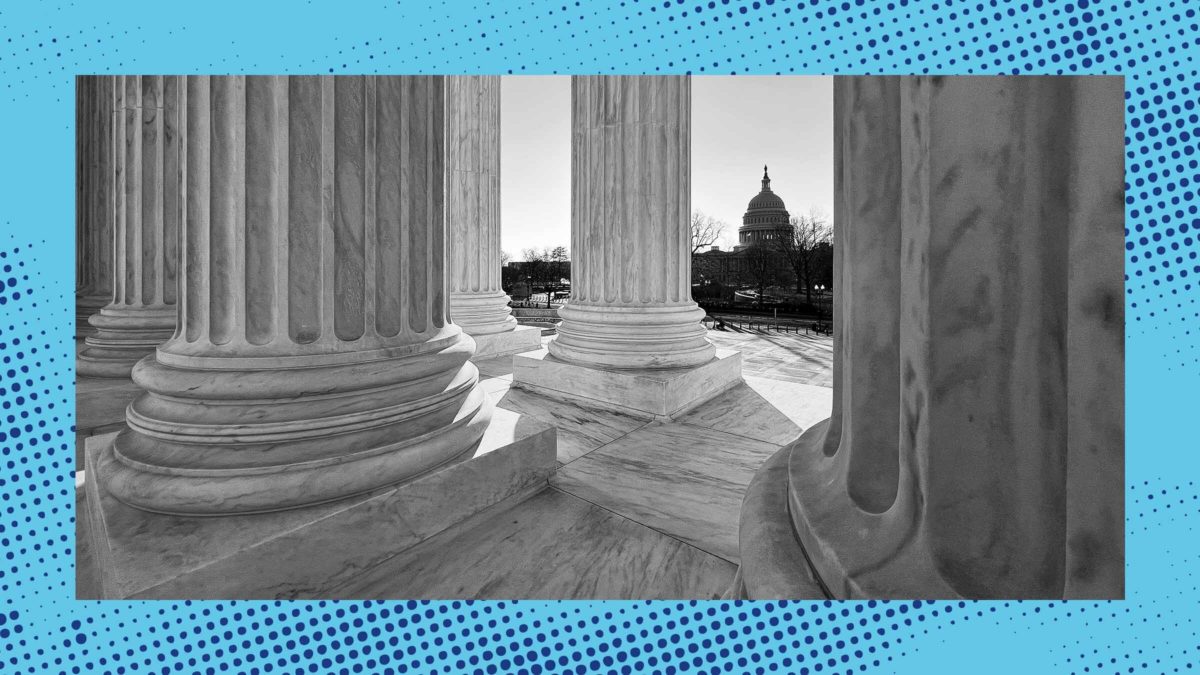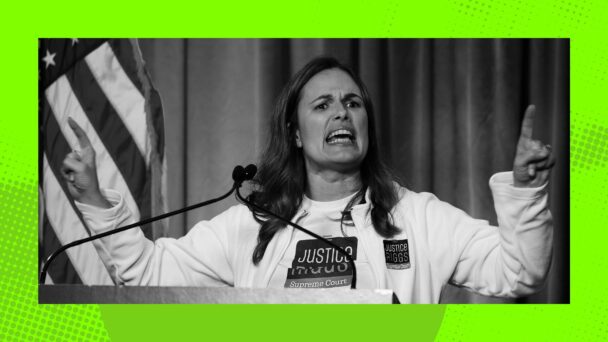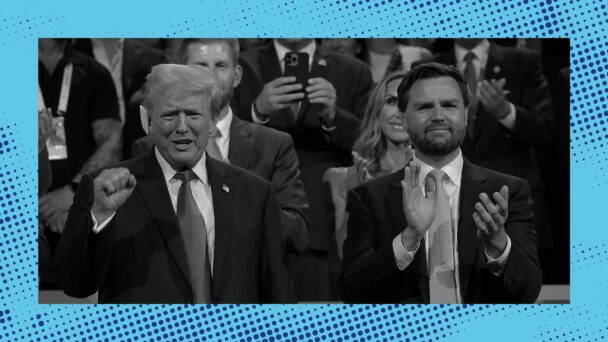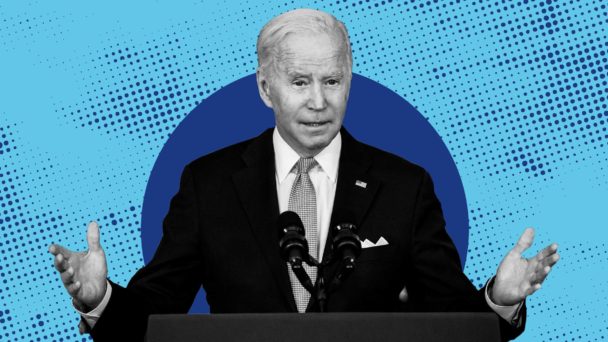Republicans have long treated the courts as a priority in the fight for political power. For decades, the effort to overturn Roe v. Wade was the engine that powered Republican voter mobilization. For at least as long, GOP Senators have treated conservative bona fides as a job requirement for judicial appointees. And throughout his tenure as Senate Majority Leader, Mitch McConnell played shameless constitutional hardball to get a Republican supermajority on the Supreme Court. Republican politicians understood that courts matter, and can dramatically shape American life.
Democrats were a little slower on the uptake. But that’s changing: The havoc wreaked by the Supreme Court’s far-right supermajority has pushed the courts closer to the forefront of liberals’ political consciousness. And just looking at an actuary table or two, the next president will likely have the opportunity to appoint new justices to the Supreme Court—as many as four, depending on how you count. On top of that, a President Kamala Harris could push for reforms such as Supreme Court expansion, term limits for justices, and stronger ethics rules. The 2024 election will be critical for determining whether the courts will continue going to hell in a handbasket—and how much power they have to drag the rest of the country along for the ride.
Harris is vetting potential running mates, many of whom are governors with track records of appointing judges to their state courts. Whomever Harris selects for the job could help continue the Biden administration’s work to appoint judges who have historically been excluded from seats of power: In his four years in office, more than 100 people of color and more than 80 professional diverse lawyers have been confirmed as federal judges. Here’s what we know so far about the judicial politics of the governors on the shortlist. (Note: This list excludes Michigan Governor Gretchen Whitmer, who has said she is not interested in joining the ticket.)
Illinois Governor J.B. Pritzker

J.B. Pritzker was elected in 2019 and is currently serving his second term. Illinois elects state supreme court justices, too, but the governor makes a judicial appointment if a vacancy arises before the term is up.
So far, Pritzker hasn’t had the opportunity to make any appointments. But he has spoken out about the federal judicial landscape, telling Politico last year that Democrats need to appoint “rational judges” to undercut the influence of Trump appointees, who, he said, are “just finding any which way they can to effectuate their policies rather than follow the law.”
Pritzker has also discussed the ethical quandaries of the U.S. Supreme Court, and called for an enforceable code of conduct. “Investigate them when they violate it, and throw them off the court if they breach their oath,” he said last week.
Kentucky Governor Andy Beshear
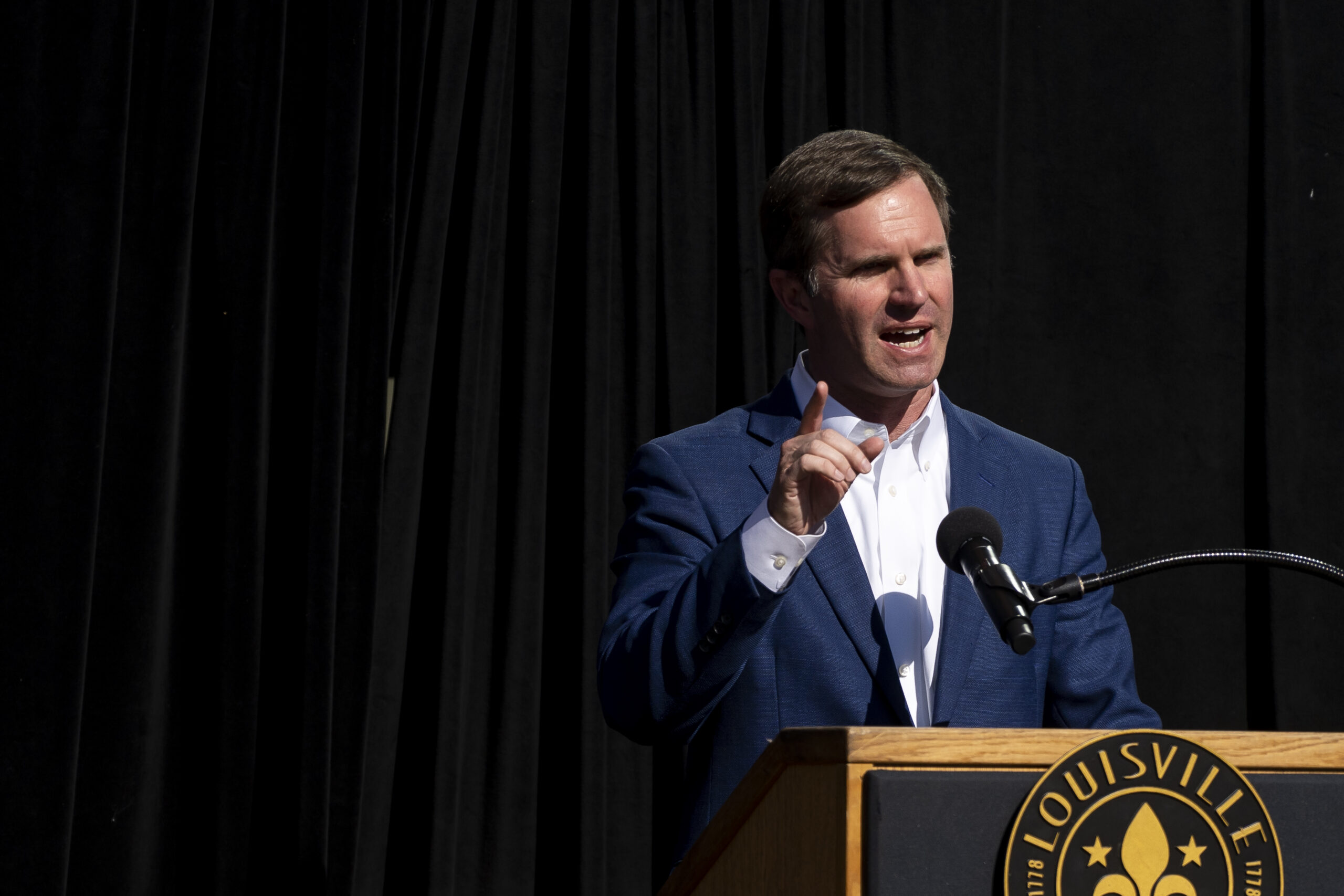
Andy Beshear was elected in 2019 and is also serving his second term. Kentucky judges are elected, but if a seat opens up during a judge’s term, the governor picks a judge from a list of three names provided by a judicial nominating commission.
Through this process, Beshear has made multiple appointments to Kentucky’s intermediate appellate court. In 2020, he appointed Chris McNeil, a longtime public defender. In 2021, he appointed Susanne Cetrulo, a civil litigator and adoption attorney. And in April 2024, he appointed Lisa Jones, a lower court judge involved in the state’s efforts to improve the legal system’s accommodations for people with disabilities, mental health needs, and substance use disorders. Given that judges are often white men who were prosecutors or partners at a corporate law firm, these are pretty rad choices.
Last month, Beshear also came out in support of Kentucky Court of Appeals Judge Pamela Goodwine, a Black woman who is running for a seat on the state supreme court. “I think it’s also time for the first Black woman on the Supreme Court, and she’s earned it,” Beshear said, adding that she would be a “really great” justice.
Minnesota Governor Tim Walz
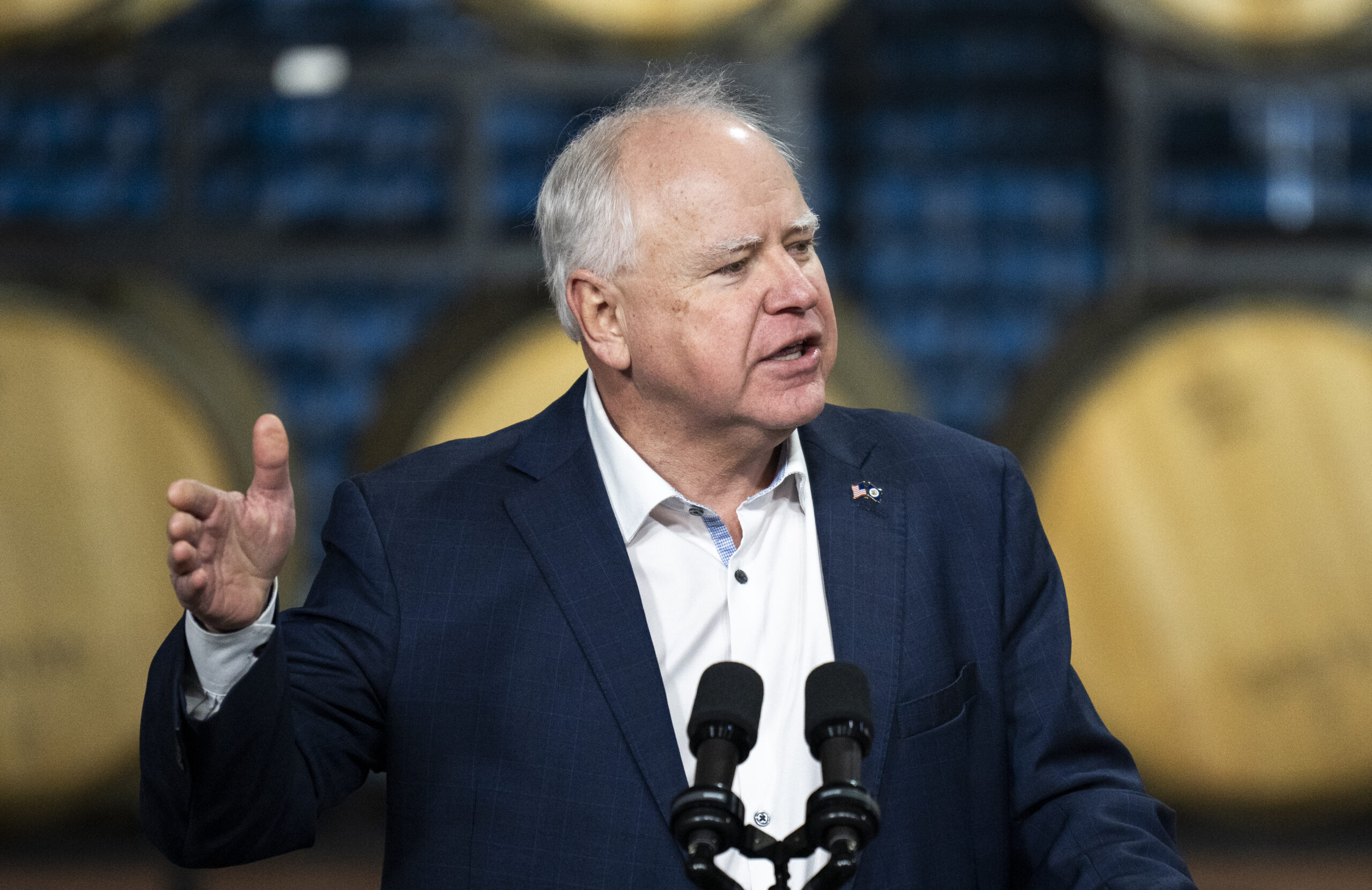
Tim Walz was elected in 2019 and is serving his second term. Minnesota elects state supreme court justices, but the governor appoints a justice if a midterm vacancy arises.
Walz has made five such appointments during his governorship, three of which deviated from the standard white-guy-prosecutor-or-corporate-attorney mold. In August 2023, he appointed Natalie Hudson, who became the first person of color and the third woman to serve as the state’s chief justice. In April 2024, Walz appointed Theodora Gaïtas and Sarah Hennesy, both of whom had long careers as public defenders before they became judges. Gaïtas also co-chaired the Tribal State Court Forum, which aims to enhance relationships between tribal courts and state courts. (Walz’s other two appointees were a prosecutor and a general counsel in the governor’s office.)
Walz has also discussed the need for political leaders to broaden whom the judiciary serves. “The diversity of our legal system should match the diversity of the communities it represents,” he said in 2021.
North Carolina Governor Roy Cooper
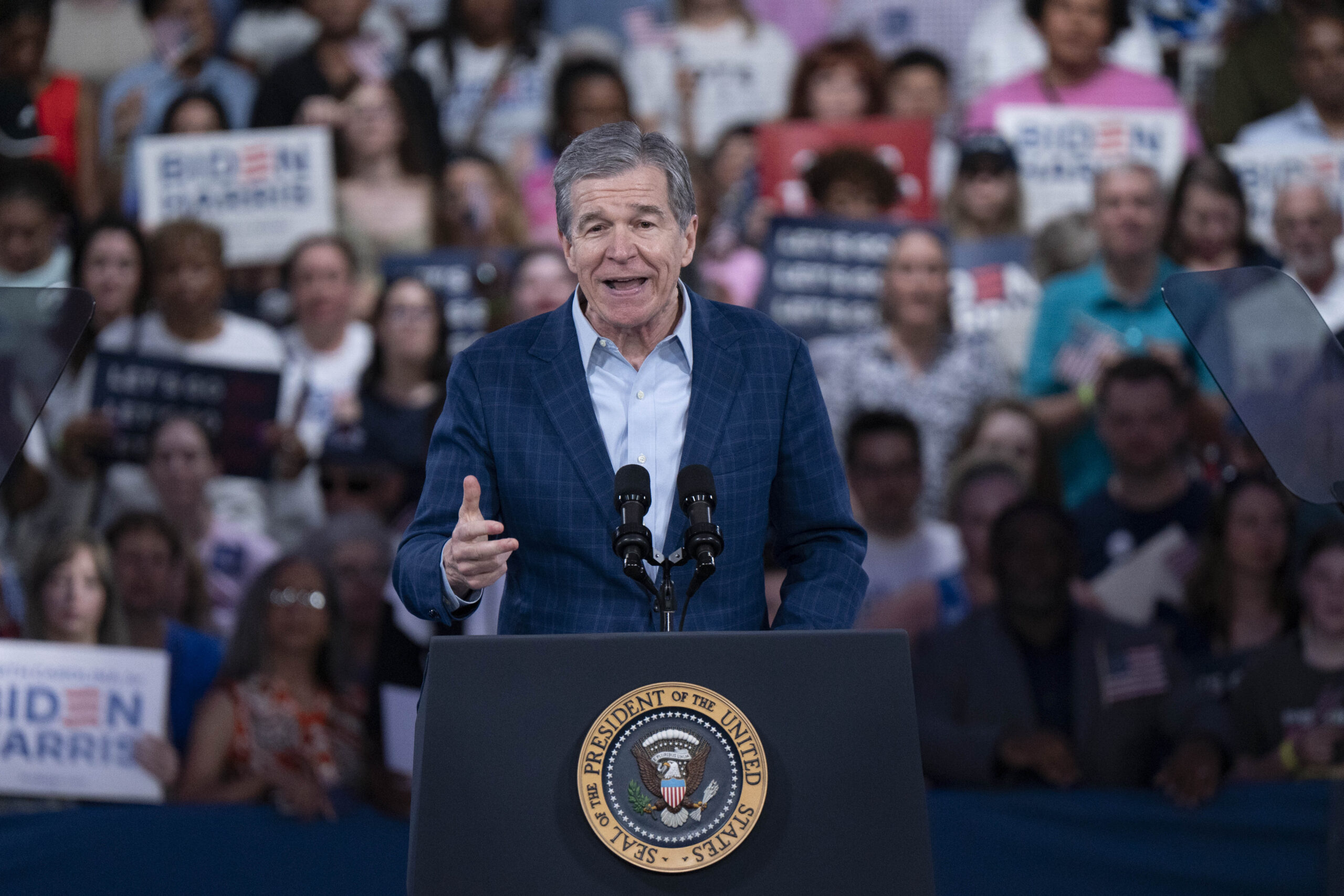
Roy Cooper was elected in 2016 and is approaching the end of his second term. He is term-limited from seeking reelection. North Carolina elects supreme court justices, but the governor appoints a candidate to fill any vacancy that arises.
In September 2023, Cooper was able to make two such appointments: One was Allison Riggs, a civil rights litigator specializing in voting rights. The other was Carolyn Thompson, a Black woman and former prosecutor who previously worked at a state agency administering workers’ compensation.
Cooper has not shied away from recognizing that the courts are political bodies, and often outright partisan. Last year, when the state’s Republican-controlled Supreme Court upheld a gerrymandered electoral map, he accused the justices of having “ignored the constitution and followed the marching orders of the Republican legislature.” And earlier this year, when the court opted to rehear a closed case about public school funding, he said that Republican lawmakers “want a partisan Republican Supreme Court to dramatically reinterpret the constitution.”
Pennsylvania Governor Josh Shapiro
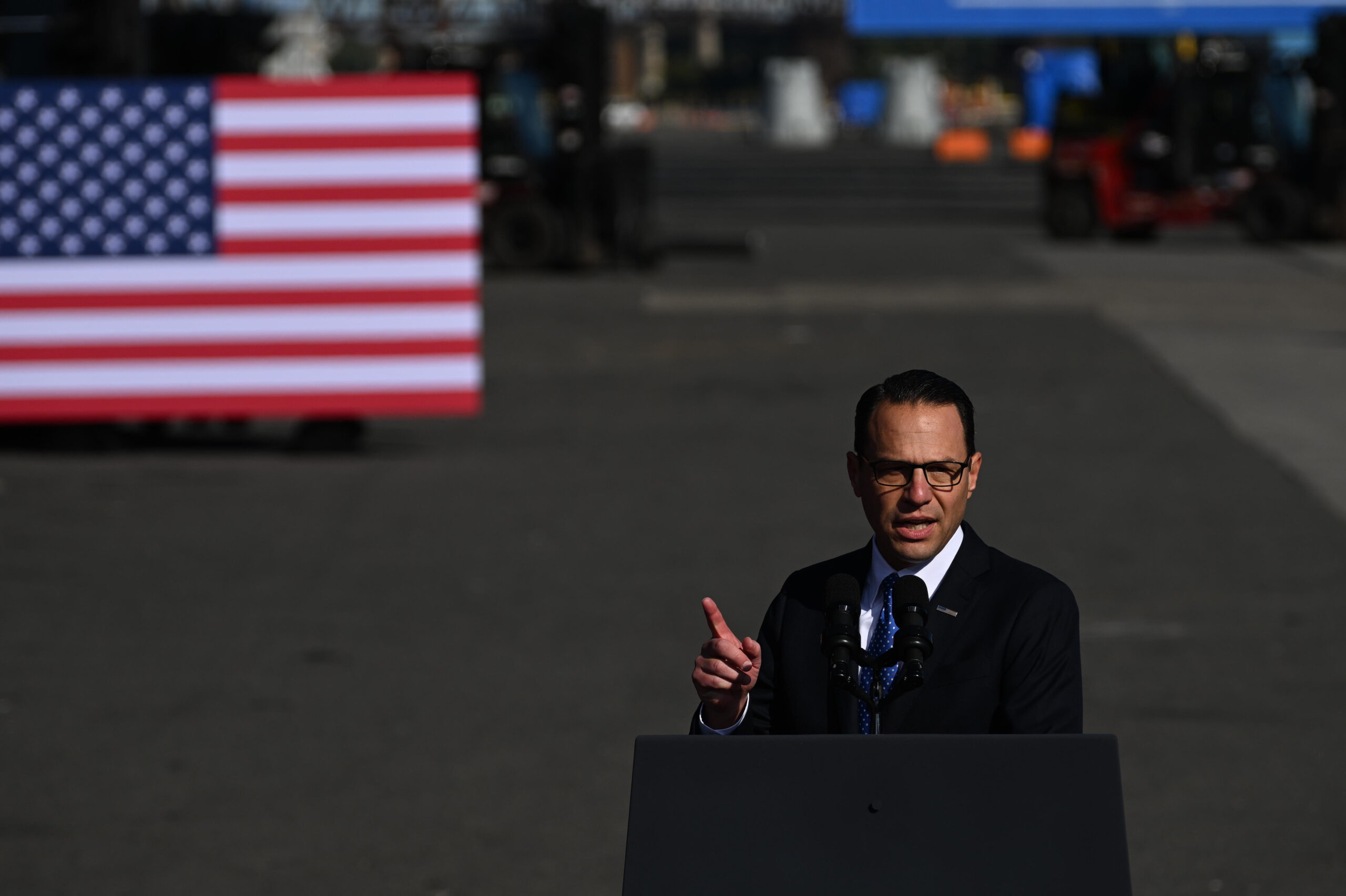
Josh Shapiro became governor of Pennsylvania last year. Justices on the state supreme court are also elected, and the governor appoints candidates to fill midterm vacancies, subject to a two-thirds confirmation vote in the state senate.
Shapiro hasn’t appointed anyone to the state supreme court, but his appointments to the lower courts have elevated prosecutors and public defenders alike. Earlier this year, he criticized the U.S. Supreme Court’s decision on Donald Trump’s criminal immunity, writing that a case decided by Trump’s “hand picked justices deeply undermined that fundamental tenet of our democracy.”
